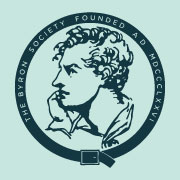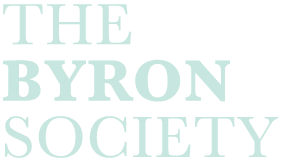By Peter Gallagher, part of our Why isn’t Don Juan Read More series.
In brief: I’m preparing to publish (“free”) an annotated and narrated edition of Cantos I & II of Byron’s Don Juan on the bicentenary of their first London publication this July. But “why narration”? Aren’t there already several readings? Do we need another?
In the earlier posts in this short series, I asked why Byron’s satirical epic Don Juan is not more popular and better known. The question, however, as Lenin might have asked, is: what can be done about it? I have suggested two approaches.
The first is an attempt to de-mystify the comedy where the language or ideas or personalities that are the targets of Byron’s satire are no longer common knowledge.
A great virtue of Don Juan is that the poem does just what Byron advertises: it talks about things that everyone knows (but don’t discuss, or not as cleverly). But not everything Byron talks about in Don Juan is still known by everyone (if you see what I mean). So some sort of annotation of the text might help to overcome confusion. Notes might even provide some amusement for Byron “geeks”: explaining the back-story of the jokes and noting some of the things Byron left unsaid.
Narration
A second way to make Don Juan more accessible is to provide a narration. There’s an argument (no space for it here, however) that poetry only exists “out loud”. This is the view that what’s on the page is a sort of invitation or instruction for poetry, like the score of a piece of music.
In this view, the narration of Don Juan is not just a prop for busy people who can’t read ottava rima verse on their phone’s screen. On the contrary; it’s the essence of the experience Byron intended. His poem, more than the poetry of his great contemporaries, is a rather-one-sided conversation with his peers or (as I suggested in an earlier post) a sort of “stand-up comedy” routine. It demands to be read out loud because the tone of Byron’s voice — or, rather, the wide range of tones in Byron’s voice — is where much of the satire and wisdom and humanity in Don Juan is to be found.
Fortunately, there are several narrations of Don Juan available from commercial and public-domain sources. First the commercial (some samples at the end of this post):
1. From 2006, Frederick Davidson’s reading of the whole poem for “Audible” (owned by Amazon). This is a stilted, awkward reading that I cannot imagine listening to for more than five minutes. Davidson, who reads the stanza numbers (huh?!), seems really not to like the poem. He can’t bring himself to enjoy the first and most obvious joke: the anglicised pronunciation of Juan’s name which Byron emphatically rhymes with “new one”. Davidson compromises with the Spanish pronunciation (“Who-wan”). Then he flubs all the other jokes, too.
2. Robert Bethune’s reading seems to have been dropped from the Audible catalog. If so, it’s a pity. He had a strong Canadian (?) burr to his voice that I found attractive. It is a more animated reading than Davidson’s and much easier listening, but still slightly flat and colourless. I noticed some mistakes in the passages I have listened to.
3. Jonathan Keeble’s 2016 recording on the Naxos label seems to be the most recent commercial version. I like it more than either of the first two. He has a very pleasant voice: it seems to be a professional, well-made recording. I have listened only to samples so I can’t make any firm recommendation. But the reviews on the Audible site are mixed: many listeners seem to agree that Keeble misses the exuberance of the humour and reads the poem as if it were the “Childe”.
4. Finally, among the “commercial” offerings there’s my reading of the Dedication and Canto I of Don Juan as part of an illustrated “read-along” version of Cantos I and II for Apple iBooks (2012). This version is not in the public domain but is now available free of charge on the iBook store (the read-along format requires an ePub3 player with audio extensions such as Apple iBooks). As far as I know, this is the only publicly available recording of the (scandalous-funny) Dedication that even Byron agreed to suppress and that was first published in a posthumous edition of the poem. I have also made a brief, experimental promotional ‘slide-show’ about the Dedication that you can view here.
As for the public domain: I’m not aware of any full-length narrations. Most of the ‘free’ recordings of complete Cantos you’ll find littered around the Internet are a re-packaging — often unacknowledged — of my pre-2011 recordings for LibriVox:
[ezcol_1third]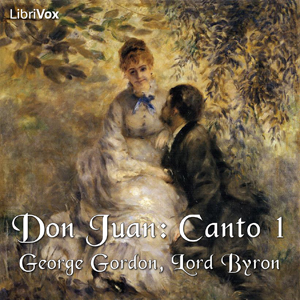 [/ezcol_1third] [ezcol_1third]
[/ezcol_1third] [ezcol_1third]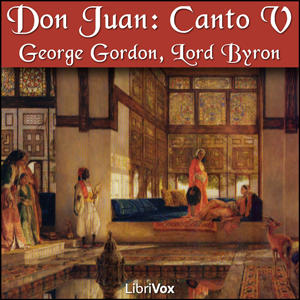 [/ezcol_1third] [ezcol_1third_end]
[/ezcol_1third] [ezcol_1third_end]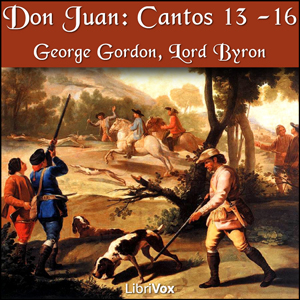 [/ezcol_1third_end]
[/ezcol_1third_end]
Last, there is, also, a rather surprising reading of a selection of stanzas from Canto I by Actor and Hollywood-heart-throb Tyrone Power that is available from YouTube. It’s nicely done and well-worth a look/listen: I only wish that Power had recorded the whole thing. He certainly had the stage-presence — on record as well as on film — to carry-off a “Byron”.
The recordings I will release in July 2019 date to 2012 and 2013. Unlike my LibriVox recordings, each was made in a professional studio in Melbourne.
The recording of Canto I is the one I used in the iBook (above) but without the musical interludes I inserted in the read-along iBook. It also omits the Dedication that I am not re-releasing in July because Murray did not include the Dedication in the first edition of Don Juan in July 1819.
My recording of Canto II that will also be released in July has never been released before.
Here are some some audio samples that will give you an impression of the different narrators mentioned above:
I hope you enjoy them. More next time…
For more entries in this Series, go to Why isn’t Don Juan Read More?
Peter Gallagher (@madbaddangerous) blogs at https://madbaddangerous.com. He plans to publish an annotated and narrated version of Cantos I and II of Don Juan later this year in celebration of the bi-Centenary of the first publication of greatest comic poem in English.
